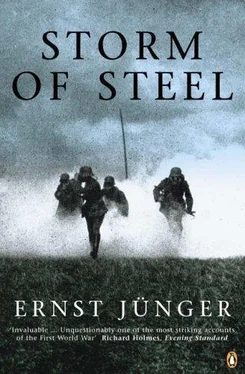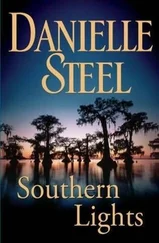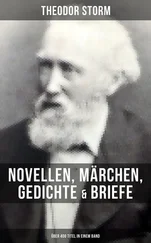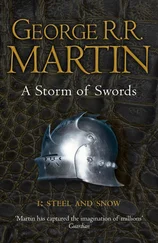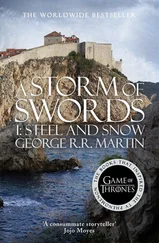The regiment had taken up a position winding through the chalky Champagne soil, facing the village of Le Godat. On the right, it abutted a tattered area of woodland, the so-called ‘Shell Wood’, and from there it zigzagged across vast sugar-beet fields, where we could see the luminous red trousers of dead French attackers dotted about, to the course of a stream, across which communications with the 74th Regiment were kept open by patrols at night. The stream poured over the weir of a destroyed mill ringed by brooding trees. For months, its water had been laving the black parchment faces of the dead of a French colonial regiment. An eerie place, especially at night, when the moon cast moving shadows through breaks in the clouds, and the sounds of the rushes and the murmuring water were joined by others less easily accounted for.
The regimen was taxing, beginning at dusk, for which the entire complement was made to stand to in the trench. Between ten at night and six in the morning, only two men out of each platoon were allowed to sleep at a time, which meant that we got two hours a night each, though they were eaten into by being woken early, having to fetch straw, and other occupations, so that there were only a few minutes left as a rule.
Guard duty was either in the trench or else in one of the numerous forward posts that were connected to the line by long, buried saps; a type of insurance that was later given up, because of their exposed position.
The endless, exhausting spells of sentry duty were bearable so long as the weather happened to be fine, or even frosty; but it became torture once the rain set in in January. Once the wet had saturated the canvas sheeting overhead, and your coat and uniform, and trickled down your body for hours on end, you got into a mood that nothing could lighten, not even the sound of the splashing feet of the man coming towards you to relieve you. Dawn lit exhausted, clay-smeared figures who, pale and teeth chattering, flung themselves down on the mouldy straw of their dripping dugouts.
Those dugouts! They were holes hacked into the chalk, facing the trench, roofed over with boards and a few shovelfuls of earth. If it had been raining, they would drip for days afterwards; a desperate waggishness kitted them out with names like ‘Stalactite Cavern’, ‘Men’s Public Baths’, and other such. If several men wanted to rest at the same time, they had no option but to stick their legs out into the trench, where anyone passing was bound to trip over them. In the circumstances, there was not much chance of sleep in the daytime either. Besides, we had two hours of sentry duty in the day too, as well as having to make running repairs to the trench, go for food, coffee, water, and whatever else.
Clearly, this unaccustomed type of existence hit us hard, especially since most of us had had only a nodding acquaintance with real work. Furthermore, we were not received out here with open arms, as we’d expected. The old-stagers took every opportunity to pull our legs, and every tedious or unexpected assignment was put the way of us ‘war-wantons’. That instinct, which had survived the switch from barracks yard to war, and which did nothing to improve our mood, ceased after the first battle we fought in side by side, after which we saw ourselves as ‘old-stagers’.
The period in which the company lay in reserve was not much cosier. We dwelt in fir-branch camouflaged earth huts round the ‘Pheasantry’ or in the Hiller Copse, whose dungy floors at least gave off a pleasant, fermenting warmth. Sometimes, though, you would wake up lying in several inches of water. Although ‘roomy-dizzy’ was just a name to me, after only a few nights of this involuntary immersion I felt pain in every one of my joints. I dreamed of iron balls trundling up and down my limbs. Nights here were not for sleeping either, but were used to deepen the many communication trenches. In total darkness, if the French flares happened not to be lighting us up, we had to stick to the heels of the man in front with somnambulistic confidence if we weren’t to lose ourselves altogether, and spent hours traipsing around the labyrinthine network of trenches. At least the digging was easy; only a thin layer of clay or loam covered the mighty thicknesses of chalk, which was easily cut by the pickaxe. Sometimes green sparks would fly up if the steel had encountered one of the fist-sized iron pyrite crystals that were sprinkled throughout the soft stone. These consisted of many little cubes clustered together, and, cut open, had a streakily goldy gleam.
A little ray of sunshine in all this monotony was the nightly arrival of the field kitchen in the corner of the Hiller Copse. When the cauldron was opened, it would release a delicious aroma of peas with ham, or some other wonder. Even here, though, there was a dark side: the dried vegetables, dubbed ‘wire entanglements’ or ‘damaged crops’ by disappointed gourmets.
In my diary entry for 6 January, I even find the irate note: ‘In the evening, the field kitchen comes teetering up, with some god-awful pigswill, probably frozen beets boiled up.’ On the 14th, by contrast: ‘Delicious pea soup, four heavenly portions, till we groaned with satisfaction. We staged eating contests, and argued about the most favourable position. I contended that it was standing up.’
There were liberal helpings of a pale-red brandy, which had a strong taste of methylated spirits, but wasn’t to be sneezed at in the cold wet weather. We drank it out of our mess-tin lids. The tobacco was similarly strong, and also plentiful. The image of the soldier that remains with me from those days is that of the sentry with his spiked, grey helmet, fists buried in the pockets of his greatcoat, standing behind the shooting-slit, blowing pipe smoke over his rifle butt.
Most pleasant were days off in Orainville, which were spent catching up on sleep, cleaning our clothes and gear, and drilling. The company was put in a vast barn that had only a couple of hen-roost ladders to facilitate entrances and exits. Although it was still full of straw, there were braziers lit in it. One night I rolled up against one, and was woken only by the efforts of several comrades pouring water over me. I was horrified to see that the back of my uniform was badly charred, and for some time to come I had to go around in what bore a passing resemblance to a pair of tails.
After only a short time with the regiment, we had become thoroughly disillusioned. Instead of the danger we’d hoped for, we had been given dirt, work and sleepless nights, getting through which required heroism of a sort, but hardly what we had in mind. Worse still was the boredom, which is still more enervating for the soldier than the proximity of death.
We pinned our hopes on an attack; but we had picked a most unfavourable moment to join the front, because all movement had stopped. Even small-scale tactical initiatives were laid to rest as the trenches became more elaborate and the defensive fire more destructive. Only a few weeks before our arrival, a single company had risked one of these localized attacks over a few hundred yards, following a perfunctory artillery barrage. The French had simply picked them off, as on a shooting-range, and only a handful had got as far as the enemy wire; the few survivors spent the rest of the day lying low, till darkness fell and they were able to crawl back to their starting-point.
A contributory factor in the chronic overtiring of the troops was the way that trench warfare, which demanded a different way of keeping one’s strength up, was still a novel and unexpected phenomenon as far as the officer corps was concerned. The great number of sentries and the incessant trench-digging were largely unnecessary, and even deleterious. It’s not a question of the scale of the earthworks, but of the courage and condition of the men behind them. The ever-deeper trenches might protect against the odd head wound, but it also made for a defensive and security-conscious type of thinking, which we were loath to abandon later. Moreover, the demands made by the maintenance of the trenches were becoming ever-more exorbitant. The most disagreeable contingency was the onset of thaw, which caused the frost-cracked chalk facings of the trenches to disintegrate into a sludgy mess.
Читать дальше
